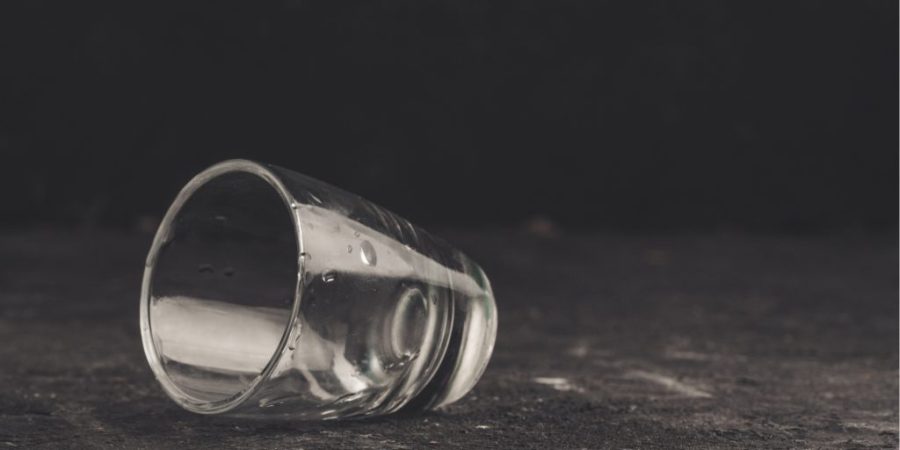
For those struggling with drug addiction, it’s a major achievement to stop engaging in active drug use, but that’s not the only step to overcoming addiction. Stopping drug usage is only the first step in recovery—in order to avoid relapse, you also have to understand the pattern of behavior behind addiction. It’s only after addressing the root causes of addiction that people can take back control of their mental health.
The term dry drunk syndrome was originally coined by the creators of Alcoholic Anonymous to describe somebody who has stopped drinking alcohol, but who still engages in “the actions and attitudes that characterized the alcoholic prior to recovery.” Simply put, a dry drunk, or dry alcoholic, is somebody who no longer engages in alcohol abuse, but still experiences all of the symptoms of addiction.
Someone who is a dry drunk may still exhibit the symptoms of alcohol addiction, such as engaging in the same impulsive, self-damaging behavior they did while using alcohol, or resort to engaging in other addictive behaviors to satisfy their cravings, like gambling.
Table of Contents
What Is a Dry Drunk?


For somebody who is already coping with depression or other mental health concerns, the symptoms of dry drunk syndrome might further complicate the road to recovery. People with dry drunk syndrome can often start to feel frustrated with the perceived slow pace of their treatment, or begin to feel like they’re regressing. This can sometimes trigger periods of relapse, especially in the absence of more helpful coping techniques. These behaviors and emotional concerns can also strain your relationships and interactions with others, especially if substance abuse has already had a negative impact on your relationships.
While dry drunk syndrome is most common among people who quit alcohol without the support of addiction professionals, anyone can become a dry drunk, especially during the emotionally charged first year of sobriety. An estimated 75% of people who stop using alcohol will experience some degree of this syndrome. Though the term is used specifically for those with addiction to alcohol, symptoms similar to dry drunk syndrome may also appear in anyone addicted to other substances who stops using drugs, but continues to engage in the same behavior as they did when they were using.
It’s not always easy to open up about substance abuse and recovery, especially to people who don’t have any experience with it. Those close to people who are experiencing dry drunk syndrome might notice that they’ve become more irritable, distant, lethargic or impulsive after they quit using alcohol—sometimes to the point of being worse to be around than when they were still using. Oftentimes, dry drunks will regress to the kinds of behaviors that drove them to seek help for their addiction issues in the first place.
What Are the Signs of Dry Drunk Syndrome?
Learning to understand the signs of dry drunk syndrome is an important step in taking control of substance abuse issues and confronting the underlying problems that cause addiction. Living like this causes pain for not only the individual, but also for those who care about them. Though it can sometimes feel like the road to mental health recovery is impossibly hard, being able to recognize these behaviors and thought processes in yourself or in your loved ones can help you develop coping mechanisms and strategies to prevent relapse.
- Changes in mood: People with dry drunk syndrome often become unusually irritable, anxious, or frustrated, sometimes with no apparent reason. They may show jealousy of friends who still drink, romanticize drinking, or lash out at others around them over small things. Seemingly baseless anger, restlessness, and anxiety is often an externalization of the dry drunk’s internal struggles with craving alcohol, or feelings of inferiority and hopelessness.
- Changes in behavior: Unusual depression, listlessness, or fatigue is a common effect of dry drunk syndrome—after stopping drinking, the person may feel they have little or no motivation to do their normal daily tasks while sober. They may also begin to pick fights with others, make decisions that put their personal and professional relationships in jeopardy, or engage in other forms of self-damaging behavior to “make up” for what they feel is missing from their lives without alcohol abuse.
- Physical symptoms: Long periods of sustained substance alcohol or drug abuse create chemical imbalances in the brain, which require time and patience to correct. After stopping alcohol usage, dry drunks often have trouble sleeping, and may exhibit the symptoms of alcohol intoxication even when sober, such as poor balance and slurred speech.
What Causes Dry Drunk Syndrome?


Many people with addiction issues first turn to using alcohol or drugs to help them to cope with past trauma, mental health issues such as anxiety, or other stressors. Although they may stop abusing substances, these underlying issues often continue to make them engage in self-damaging behaviors. The cause behind dry drunk syndrome is the relationship between mental health and addictions: just because somebody stops using alcohol doesn’t mean that their mental wellness is restored. For that kind of full recovery, people need specialized care.
Treatment of both addiction and underlying mental issues is called dual diagnosis treatment. Dual diagnosis programs combine mental health therapy with a substance abuse treatment to ensure that doctors are addressing both mental health and addiction issues at the same time.
Getting Help Today
If you’re suffering from dry drunk syndrome, you may feel like you don’t need help since you’re not drinking or using drugs anymore. You may even find yourself thinking that residential or outpatient rehab is a waste of time and energy. These negative attitudes are characteristic of a dry drunk and can overtake any positivity about being sober or living a lifestyle of sobriety.
The Blackberry Center in St. Cloud, Florida, just outside of Orlando, offers an intensive dual diagnosis treatment program. At The Blackberry Center, we tailor each dual diagnosis treatment plan to our patients’ needs. The road to recovery isn’t always easy Confronting all of the aspects of addiction at once will help to secure a successful recovery and freedom from the struggle with substance abuse.
If you or someone you love needs help with an alcohol or substance use disorder or is living as a dry drunk, we can help. You can call our admissions staff at 888-512-9802 or, if you’re not ready to take that step, you can fill out our online contact form.
The post What Is a Dry Drunk: The Mental Health Recovery Connection appeared first on The Blackberry Center of Central Florida.
Source
Original Author: The Blackberry Center

